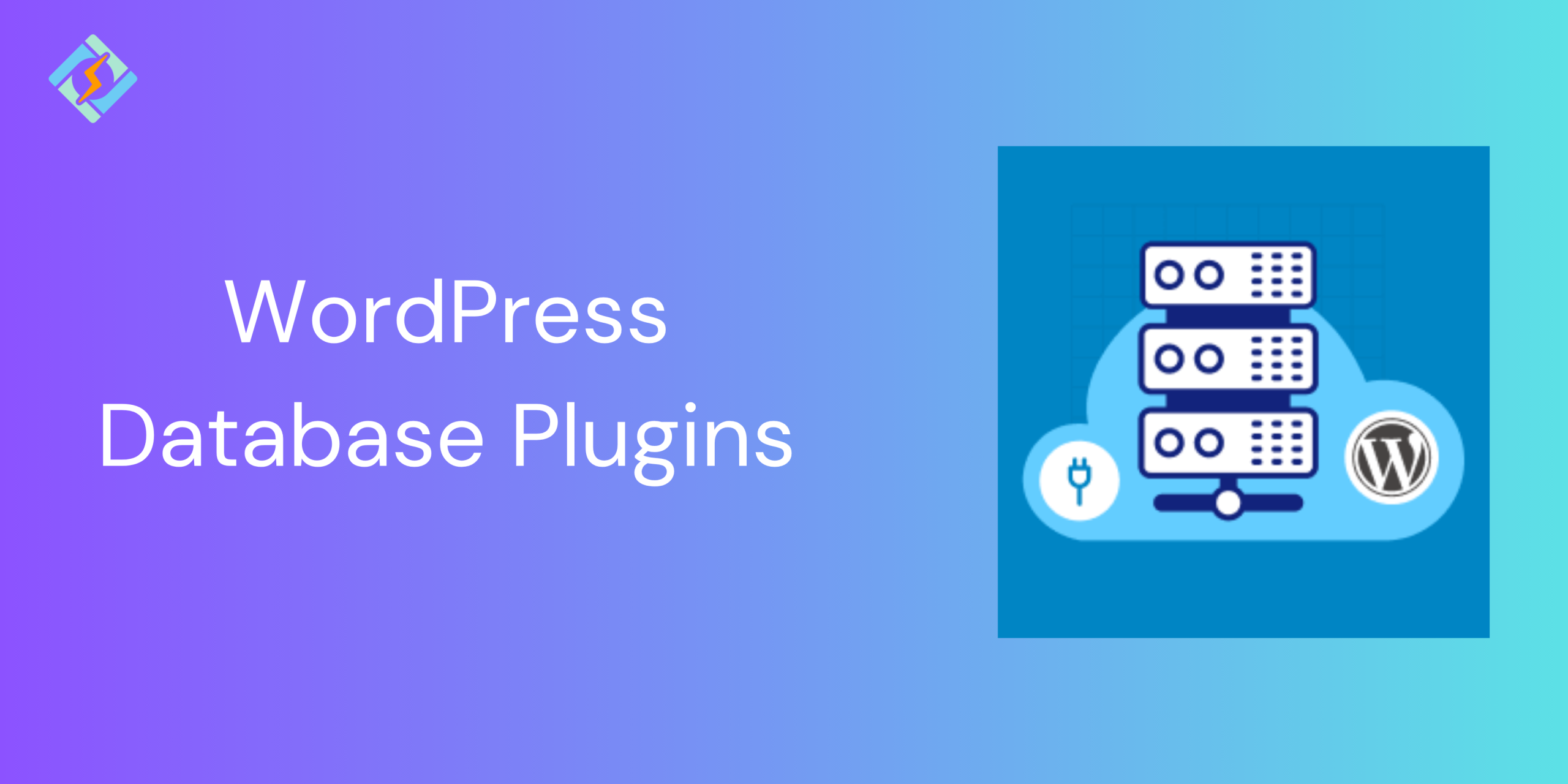Website maintenance of a WordPress site is more than creating content and choosing themes. Your website’s database silently in the background saves and loads data in an effective way. Over time, as your site becomes larger, however, the database becomes overrun with duplicate data, slowing down your site and presenting security threats. That is where WordPress database plugins come to the rescue.
In this tutorial, we will be explaining why database optimization is important, what are the features of best WordPress database plugins, and providing you with step-by-step actions to maintain your website’s database in good health.
The WordPress Database
Let us first understand what WordPress database does. WordPress uses a MySQL or MariaDB database to hold all your website’s data, including:
- Posts and pages
- Comments
- User information
- Theme and plugin settings
- Custom fields and metadata
As you edit, add, and delete posts, the database can become full of unwanted data such as post revisions, spam comments, and orphaned metadata. Routine maintenance ensures optimum performance and security.
Why You Need to Use a WordPress Database Plugin?
Hand-coding database administration is technical and risky unless it is done right. Database plugins simplify it by offering:
- Optimization: Get rid of unwanted data to speed up your site.
- Backup and Restore: Back up to prevent data loss and restore when needed.
- Security: Keep your data safe by encrypting it and scanning frequently.
- Automation: Automate maintenance activities in regular intervals to keep your database healthy.
Best 10 WordPress Database Plugins
Now let’s talk about some of the best WordPress database plugins:
Get exclusive access to all things tech-savvy, and be the first to receive
the latest updates directly in your inbox.
1. WP-Optimize

WP-Optimize is all in one solution offering database optimization, image compression, and caching.
Key Features
- Deletes post revisions, spam comments, and transient options.
- Compresses images to speed up loads.
- Caches pages to provide high performance.
- Schedules automatic cleanups.
Use Case: Good for users who need a feature-rich optimization plugin.
2. Advanced Database Cleaner
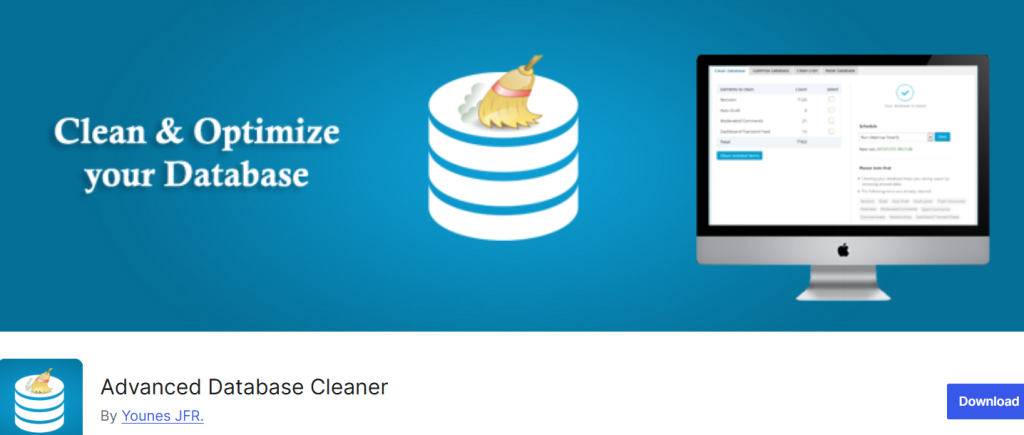
This plugin is committed to cleaning and optimizing your database by removing unwanted data.
Key Features
- Removes old revisions, drafts, and spam comments.
- Discovers and removes orphaned metadata.
- Schedules automatic cleanups.
- Supports multisite installations.
Use Case: Best for users who need detailed control over database cleanup.
3. WP-DBManager
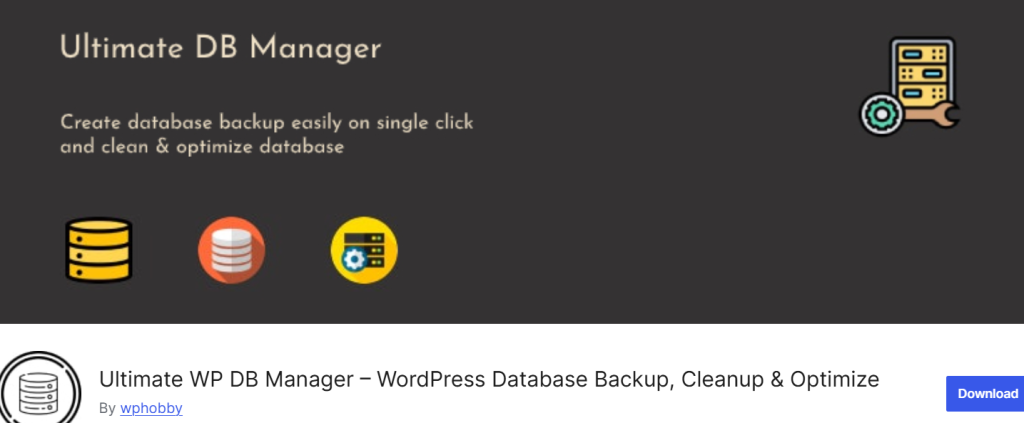
WP-DBManager provides a series of database management features, including optimization, repair, and backup.
Key Features
- Backs up and restores the database.
- Optimizes and repairs tables.
- Runs SQL queries.
- Schedules automatic tasks.
Use Case: Best for users requiring additional database management features.
4. WP-Sweep

WP-Sweep allows you to clean up your database by removing unused, orphaned, and duplicate data.
Key Features
- Removes revisions, auto drafts, and spam comments.
- Removes duplicate post metadata.
- Provides complete reports on the cleanup operation.
Use Case: Suitable for users who are looking for an easy cleanup utility.
5. Optimize Database after Deleting Revisions

The plugin would delete post revisions and expired posts and optimize the database.
Key Features
- Deletes trashed posts, revisions, and spam comments.
- Optimizes database tables.
- Schedules automatic optimizations.
Use Case: Suitable for users who frequently update and wish to handle revisions efficiently.

6. BackupBuddy
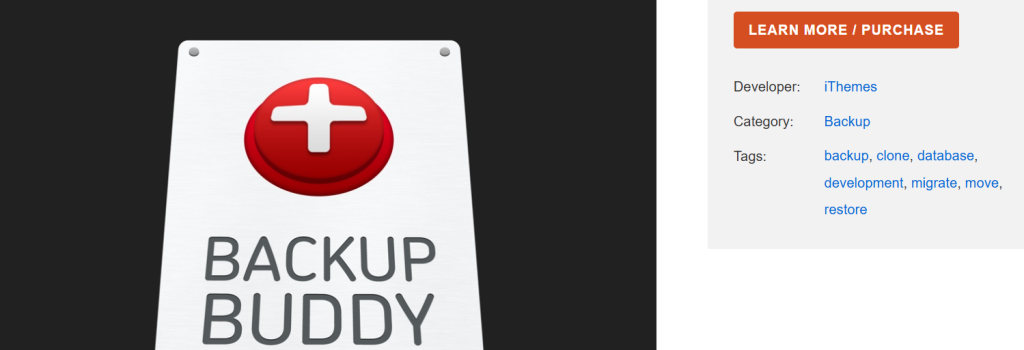
BackupBuddy by iThemes is not only a backup plugin but also has strong database management tools, which makes it a go-to for developers and serious WordPress users.
Key Features
- Backs up your whole site (files and database)
- Provides stand-alone database-only backups
- One-click easy restore option
- Scheduled backups for automatic backup
- Supports remote storage (Google Drive, Dropbox, etc.)
Use Case: Ideal for those who need both database and backup protection in a single trusted plugin. It’s perfect if you have mission-critical sites and require disaster recovery features.
7. UpdraftPlus

UpdraftPlus is one of the top WordPress backup plugins and features robust support for restoring and backing up your database independently or with files.
Key Features
- Individual backup of database and files
- Supports automated backups
- Easy restoration from the dashboard
- Cloud storage integration (Dropbox, Google Drive, Amazon S3, etc.)
- Multisite support (in premium version)
Use Case: Ideal for beginners and professionals who need a fast, set-it-and-forget-it backup process with database safeguarding.
8. Database Backup for WordPress (WP-DB-Backup)

A lightweight, database-only backup plugin that offers nothing more, yet nothing less.
Key Features
- Manual or scheduled database backups by simple interface
- Delivery of backup files by email
- No file or theme backups included
- Extremely light and resource-friendly
Use Case: Great for those who need a no-frills, plain vanilla backup of their WordPress database minus the frills. Perfect for light blogs or development environments.
9. Smart Cleanup Tools
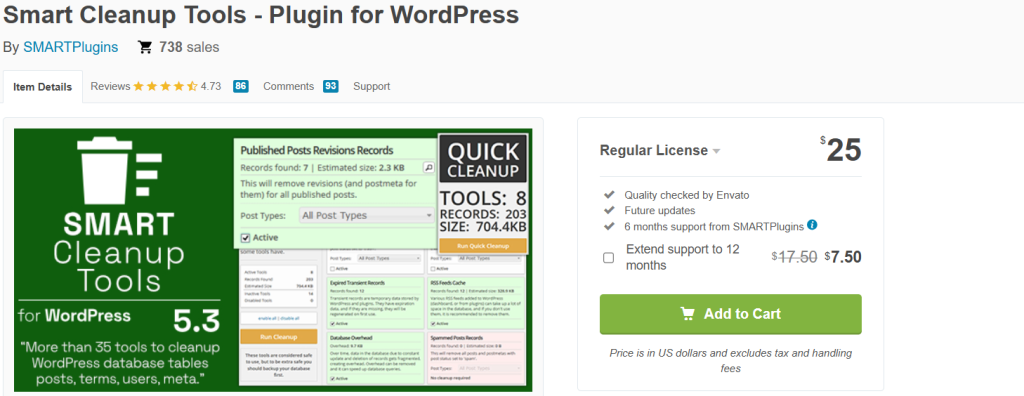
Smart Cleanup Tools is a high-end plugin dedicated to expert database cleanup. It provides you with minute control over what to clean and when.
Key Features
- Cleaning of over 40 types of unused or abandoned data
- Visual representation of database health
- Automatic scheduled cleanups
- Supports custom post types and taxonomies
- Optimizes database tables
Use Case: Ideal for power users looking for extensive control and more visibility into what is being deleted. Great for big or complex WordPress sites.
10. WP Database Reset
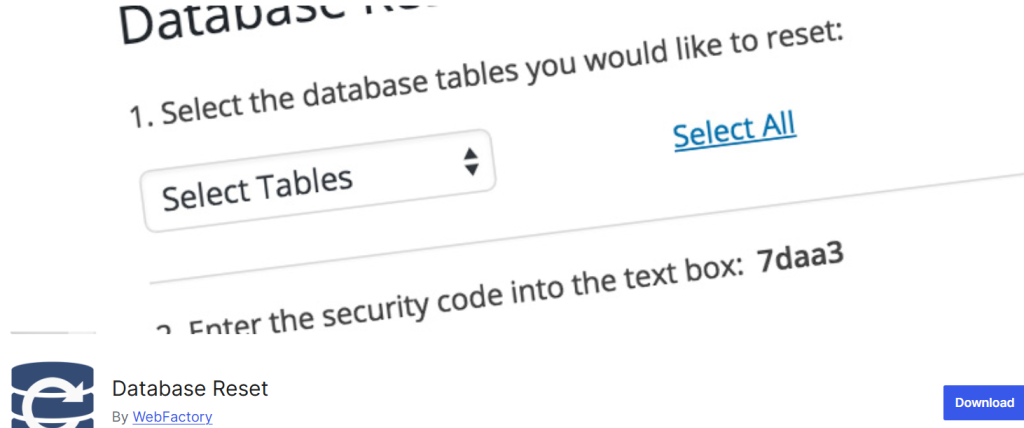
Where others are more about cleanup and backup, this one allows you to reset your WordPress database back to its default status something for developers or individuals working on staging sites.
Key Features
- Resets the whole database or specified tables
- One-click reset with safety checks
- Command line (WP-CLI) support for developers
- Lightweight and fast
Use Case: Ideal for developers or testers who constantly have to reset a WordPress site to default during the development process. Not ideal for live production sites unless carefully used.
Best Practices for Database Optimization
To maintain a healthy WordPress database:
- Regular Backups: Back up your database prior to each update.
- Scheduled Maintenance: Execute cleanups through the assistance of plugins.
- Monitor Performance: Have your site speed and responsive under monitored.
- Limit Revisions: Restrict WordPress to retain a limited number of post revisions.
- Delete Unused Plugins/Themes: Remove unused plugins and themes for cleanliness.
Conclusion
An updated database is central to the health and security of your WordPress site. Automate maintenance, boost performance, and offer security to your data using the right WordPress database plugins. Review your site’s unique needs and choose a plugin that supports your maintenance schedule.
Don’t forget, regular database optimization not only enhances user experience but also promises better search engine rankings and site success.
FAQs
What is a WordPress database plugin?
WordPress database plugins is a software program that assists you in managing, optimizing, backing up, or cleaning your site’s database. Such plugins make it easy to perform tasks such as deleting trash data, creating backups, or restoring your site following an error.
Why should I use a database plugin on my WordPress site?
Over time, your WordPress database accumulates trash such as post revisions, spam comments, and unused metadata. A database plugin assists in cleaning that up, which can make your site faster and ease server load.
Will using a database plugin make my website faster?
Yes, it will. Clearing out unneeded data and optimizing tables can cut down the amount of time it takes for WordPress to access information from the database, which translates to faster page loads.
Is it okay to clean out the database via a plugin?
Yes, but always back up your database first. Most good plugins have built-in backup facilities or reminders. It’s an insurance policy just in case things do go wrong during cleanup.
